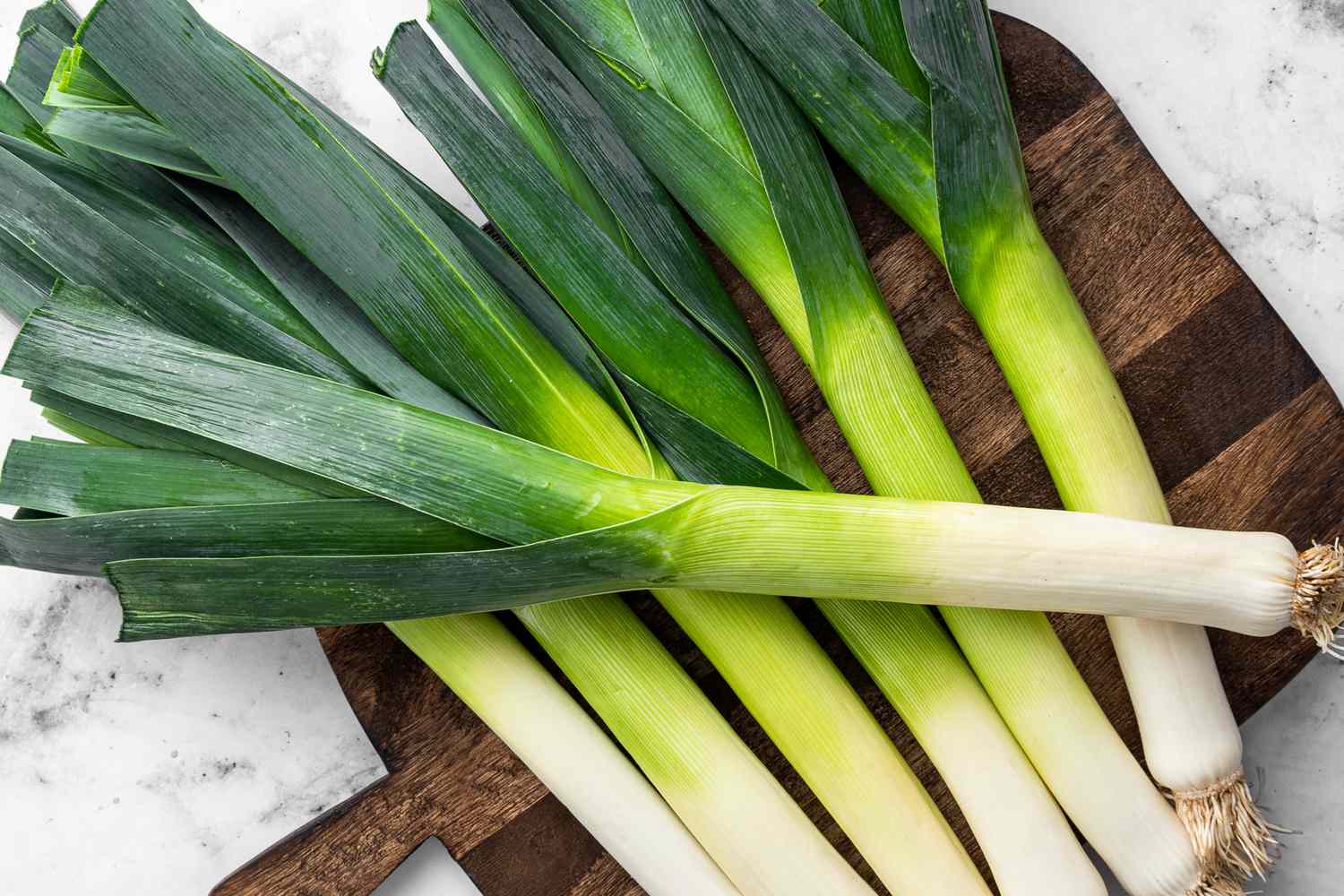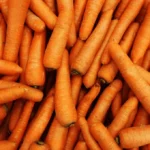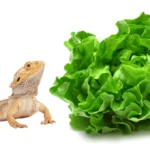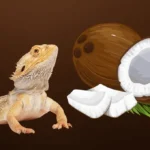Bearded dragons are omnivorous reptiles that require a diverse diet to maintain optimal health. Their diet includes insects, leafy greens, vegetables, and fruits. While many vegetables are suitable for bearded dragons, it’s important to understand which ones are beneficial and which may pose risks.
Leeks are a type of vegetable often used in human cooking, but can they be safely included in a bearded dragon’s diet? This article examines the suitability of leeks for bearded dragons, including their nutritional content, benefits, and potential risks.
Nutritional Profile of Leeks
Leeks are a member of the Allium family, which also includes onions, garlic, and shallots. Here’s a look at their nutritional profile and how it may impact bearded dragons:
Vitamins in Leeks
Leeks are rich in several vitamins:
- Vitamin A: Important for vision, immune function, and skin health.
- Vitamin C: Supports the immune system and aids in wound healing.
- Vitamin K: Plays a role in blood clotting and bone health.
These vitamins are beneficial for overall health but may not be as crucial for bearded dragons compared to other sources of nutrition.
Minerals in Leeks
Leeks contain various minerals:
- Calcium: Essential for bone health and preventing metabolic bone disease (MBD). However, the calcium content in leeks is relatively low compared to other vegetables.
- Iron: Supports red blood cell production and overall energy levels.
- Potassium: Helps maintain fluid balance and muscle function.
While leeks do provide some essential minerals, they are not as rich in calcium as other vegetables that are typically recommended for bearded dragons.
Fiber Content
Leeks are high in dietary fiber, which can aid digestion and help maintain regular bowel movements. Fiber is beneficial for preventing constipation, but it should be balanced with other foods in the diet.
Sulfur Compounds
Leeks contain sulfur compounds, which give them their distinctive flavor. While these compounds have health benefits for humans, they may not be ideal for bearded dragons in large amounts.
Benefits of Feeding Leeks to Bearded Dragons
Feeding leeks to bearded dragons can offer some benefits, but they should be introduced cautiously:
1. Nutritional Variety
Leeks can add variety to your bearded dragon’s diet, which can help prevent nutritional deficiencies. They provide a range of vitamins and minerals that contribute to overall health.
2. Digestive Health
The fiber content in leeks can support digestive health and help prevent constipation. Including leeks occasionally can contribute to a balanced diet.
Risks and Considerations When Feeding Leeks
There are several risks associated with feeding leeks to bearded dragons:
1. Low Calcium Content
Leeks have a relatively low calcium content compared to other vegetables. An inadequate calcium-to-phosphorus ratio can contribute to metabolic bone disease (MBD) and other health issues. It’s important to balance leeks with other calcium-rich foods.
2. Sulfur Compounds
The sulfur compounds in leeks can cause digestive upset in some reptiles. These compounds can be harsh on their digestive systems if consumed in large quantities.
3. Potential for Digestive Upset
The high fiber content in leeks may lead to digestive issues if fed in excess. Ensure that leeks are offered in moderation and balanced with other foods.
4. Risk of Toxicity
While leeks are generally safe in small amounts, they are related to onions and garlic, which can be toxic to some animals if consumed in large quantities. It’s crucial to monitor for any signs of adverse reactions.
How to Safely Feed Leeks to Bearded Dragons
If you choose to include leeks in your bearded dragon’s diet, follow these guidelines to ensure they are safe and beneficial:
1. Offer in Moderation
Feed leeks as an occasional treat rather than a staple of their diet. Small, bite-sized pieces are ideal to avoid overconsumption and ensure they are easily digestible.
2. Prepare Properly
Wash leeks thoroughly to remove any pesticides or chemicals. Cook them lightly to reduce sulfur content and make them easier to digest. Ensure that they are cut into small, manageable pieces.
3. Monitor for Adverse Reactions
Observe your bearded dragon after introducing leeks to their diet. Look for any signs of digestive discomfort or changes in behavior. If any adverse reactions occur, discontinue feeding leeks.
Alternative Vegetables for Bearded Dragons
If you’re looking for other vegetables that are generally safer and more nutritious for bearded dragons, consider these options:
| Vegetable | Nutritional Benefits | Feeding Frequency |
|---|---|---|
| Collard Greens | High in calcium, Vitamin A, and fiber | Daily |
| Mustard Greens | Rich in calcium, vitamins, and fiber | Daily |
| Butternut Squash | Rich in vitamins A and C, good for hydration | 2-3 times a week |
| Bell Peppers | High in Vitamin C, low in phosphorus | 2-3 times a week |
| Sweet Potatoes | High in Vitamin A and fiber | 1-2 times a week |
These vegetables offer a more balanced nutritional profile and are safer options for bearded dragons.
Conclusion
Leeks can be included in a bearded dragon’s diet occasionally, but they should not be a regular food item. While they provide some nutritional benefits, such as fiber and a range of vitamins, they also present risks due to their low calcium content and sulfur compounds. To maintain optimal health, ensure that your bearded dragon’s diet is well-balanced with a variety of vegetables and other foods. By following these guidelines, you can provide a nutritious and varied diet for your bearded dragon.










